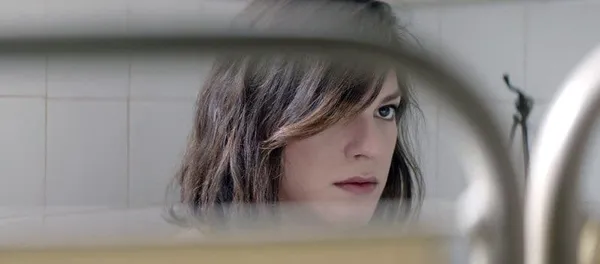Eye For Film >> Movies >> A Fantastic Woman (2017) Film Review
A Fantastic Woman
Reviewed by: Amber Wilkinson

A sense of identity lies at the heart of Sebastian Lelio's latest film - which has made it to this year's Oscar shortlist - in particular, the way that self-definition can often be at odds with the manner in which others wish to define us, and what happens when that is the case. In that respect, it shares a lot of DNA with his previous film Gloria, a celebration of a woman in middle age, although it is rather more 'on the nose' in terms of imagery and predictable than his previous film.
Marina (Daniela Vega) knows exactly who she is and makes no bones about it. A transgender woman, we meet her at that sweet spot in her romantic relationship where everything seems to be going perfectly. Her older boyfriend Orlando (Francisco Reyes) is attentive and loving, even if he has managed to misplace her birthday present, and the night out they're on is obviously just the latest in a long succession of loving encounters.

Fast-forward a few hours and the world has turned. Orlando has died suddenly and Marina is faced with the twin blows of crushing grief and bruising discrimination. It starts in the hospital, where a medic's attitude - and use of pronouns - towards her shifts as soon as he sees her identification card, later she'll be visited by a detective from the sex offence unit (Amparo Noguera), whose veneer of sympathy also soon cracks to reveal unpleasant bias.
Orlando's family are scarcely much better. His brother Gabo (Luis Gnecco) has a sympathetic approach but the rest of his clan view Marina as "fantastic" only in the sense that they can't believe what they are seeing. We watch as she tries to grapple with grief while facing unremitting contempt from Orlando's son Bruno (Nicolás Saavedra) and ex-wife Sonia (Aline Küppenheim). The film is big on emotion but light on plot. The main driver is Orlando's impending funeral, although there is a subplot regarding that missing birthday present that is, unfortunately, much less profound than you suspect Lelio and his co-writer Gonzalo Maza think it is.
This is an issue in general, Lelio makes no bones about how he wants us to feel, to the point where it sometimes feels as though he is stating the obvious is six-foot neon letters - from the overt use of (You Make Me Feel Like) A Natural Woman, to scripting that brands her a "chimera" and the moment when a mirror is carried past Marina only to pause at just the right moment to make sure we have all fully got the point about self-reflection.
What elevates the film is the perfect casting of Vega in the central role. Where other actors - particularly non-trans ones - might have pushed the emotions 'big', Vega holds them tight within herself, stoically pressing on without boiling over. It's a restraint that feels borne out of a lifetime of potential threat and vulnerability, as though Marina has learned that big displays will attract all the wrong sort of attention. This approach is matched by excellent costume work from Muriel Parra - clothing choices that indicate a person who is comfortable with themselves but also not seeking to draw the gaze of others. The scoring from Matthew Herbert, by turns soaring and discordant, also proves a more nuanced navigator of the film's more complex emotions of grief than its visuals - it's a shame the scripting never quite matches the subtlety of this or the film's central performance.
Reviewed on: 18 Feb 2018

















